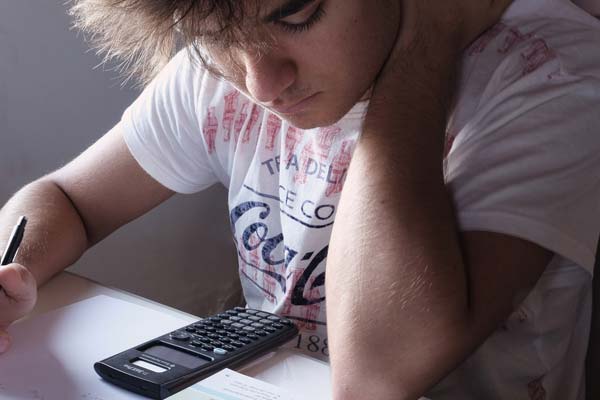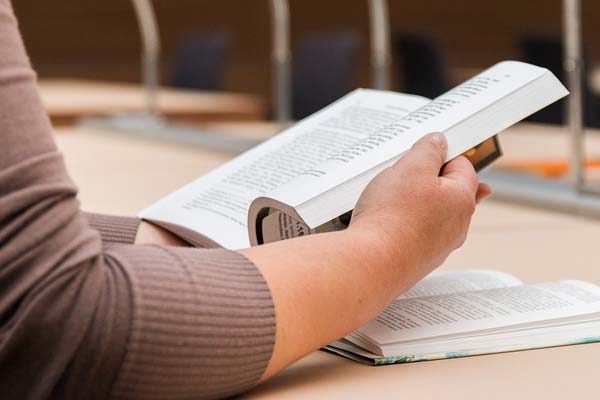Can IGCSE Results Be Wrong? Exploring the Possibility of Inaccurate Grades
IGCSE exams are taken by students worldwide and are marked by experienced examiners trained to follow strict marking guidelines.
Two different examiners mark each student’s paper to ensure fairness and accuracy. Once the marks have been assigned, they are moderated by senior examiners to ensure consistency across all papers.
The results of IGCSE exams are reported on a Statement of Results. This document shows the student’s grades for each subject they have taken and their overall grade for the qualification.
The statement also includes information about the student’s performance in each exam component, including any submitted coursework.
It is important to note that the Statement of Results is a provisional document, and it may be subject to change if there are any errors in the marking or grading of the exams. In some cases, students may need to request a review of their results if they believe there has been a mistake.
Students can contact their school or exam center if they need to challenge their results. The school will then work with the exam board to investigate the issue and determine whether any changes need to be made to the student’s grades.
Process of IGCSE Marking
The IGCSE marking process involves several stages to ensure the final results are accurate and reliable.
The process is designed to follow strict criteria and standards set by Cambridge Assessment International Education, the body responsible for conducting and marking IGCSE exams.
The marking process begins with appointing trained and qualified examiners to mark the papers. The examiners are selected based on their expertise and experience in the subject area they are marking.
They must follow strict guidelines and marking schemes to ensure consistency and accuracy.
Once the examiners have marked the papers, the scripts are sent to senior examiners, who review a sample of the marked scripts to ensure that the marking standards have been applied consistently.
🌟 Hey Students! 🚀 Ready for the ultimate experience? Join us on Studentsinside.com's Facebook, YouTube, WhatsApp, and LinkedIn. Click now for tips, fun, and success vibes! 🌈✨ #StudentLife #JoinUs
This process is known as standardization and is designed to ensure that all examiners are marking to the same standard.
After the standardization process, the marks are sent to Cambridge Assessment International Education, where they are checked and verified.
This involves a full clerical recheck, where all the marks on the papers are checked to ensure they have been correctly counted. At this stage, the papers are not re-marked.
Candidates who still need to improve their results can request a full re-mark of all their papers. This involves a complete re-marking of the papers by a new examiner who has yet to see the original marks.
The re-marking process ensures that the candidate’s work is assessed accurately and fairly.
Can IGCSE Results Be Wrong?
IGCSE results are an essential milestone for students who have completed their secondary education. However, sometimes, students may feel that their results do not reflect their abilities and wonder if their IGCSE results need to be corrected.
It is important to note that IGCSE results are accurate, and mistakes can happen. The exam marking process is designed to be fair and accurate, but errors can occur for various reasons, such as human error or technical glitches.
If students believe their IGCSE results are incorrect, they can request a re-mark of their paper.
The British Council offers a re-marking service for IGCSE exams, and students can request a re-mark through their school or directly from the British Council.
It is important to note that the re-marking process does not guarantee a student’s grade will change. If the re-marking process confirms the original grade, the student’s result will remain unchanged.
It is also worth noting that not all questions on the IGCSE exams can be marked objectively.
Some questions require subjective assessment, leading to differences in marking between examiners. However, the exam boards have processes to ensure consistent and fair marking.
Enquiries About Results
After receiving their IGCSE results, students may have concerns about the accuracy of their grades. In such cases, they may request an Enquiry About Results (EAR) service from Cambridge Assessment International Education.
The EAR service allows students to have their examination scripts reviewed or their school’s internally assessed work re-moderated. It is important to note that the EAR service is not a re-marking service.
Instead, it is a review of the marking process to ensure the original marking was accurate and consistent with the mark scheme.
To request an EAR, students must contact their school’s exams officer, who will then submit the request to Cambridge Assessment.
The request must be made within a specific time frame, usually within 30 days of the release of the results.
It is important to note that the EAR service is not free of charge. Students must pay a fee for each script or component that is reviewed. The costs vary depending on the subject and the type of review requested.
Cambridge Assessment takes excellent care in marking and grading examination scripts. However, errors can occur, and the EAR service allows students to have their results checked for accuracy. The student’s grade will be amended accordingly if a mistake is found.
The Appeal Process
Students who believe their IGCSE results are incorrect can appeal the grade. The appeals process consists of two stages, and it is essential to note that it is not a re-marking of the exam.
Stage 1: Review of the Exam Paper
The first stage of the appeals process is a review of the exam paper. This review is a full clerical recheck, ensuring that all exam paper marks have been counted correctly.
The review ensures that everything is correct in calculating the final grade. At this stage, the exam papers will not be re-marked.
Stage 2: Portfolio of Evidence
If a student is not satisfied with the outcome of the first stage, they can proceed to the second stage of the appeals process. The second stage involves submitting a portfolio of evidence to support their appeal. This portfolio of evidence can include any relevant information that was not considered during the initial grading process.
The portfolio of evidence will be reviewed by an independent examiner who was not involved in the initial grading process. The examiner will consider the evidence and determine whether the grade should be changed.
It is important to note that the appeals process does not guarantee that the grade will be changed. However, if the grade is changed due to the appeals process, the student will receive a new certificate reflecting the new grade.
IGCSE Exam Series
The IGCSE exams are conducted twice a year, in June and November. The June exam series is also known as the summer series, while the November exam series is known as the winter series.
The June exam series is mainly for students in the northern hemisphere, while the November exam series is primarily for students in the southern hemisphere. However, students can take either exam series, depending on their preference and circumstances.
The results for the June exam series are usually released in August, while the results for the November exam series are generally released in January. Students can access their results online using their candidate login details.
It is important to note that the IGCSE exams differ from the O-level exams. The University of Cambridge International Examinations (CIE) sets the O Level of exams students in the United Kingdom and other Commonwealth countries generally take. On the other hand, the IGCSE exams are set by the CIE but taken by students worldwide.
While it is rare, there have been cases where IGCSE exam results have been inaccurate. This can happen for various reasons, such as errors in marking, data entry, or processing.
If students believe their exam results are incorrect, they can contact their school or exam center to request a review or re-mark their exam papers.
Costs and Deadlines
Students who are not satisfied with their IGCSE results can request a review of their results. However, certain costs and deadlines must be considered before making such a request.
The fees for requesting a review of results vary depending on the type of service requested. For example, the price for a clerical recheck is lower than the fee for a full re-mark of all papers. The cost of the service can be found on the relevant exam board’s website.
It is important to note that the fees for post-results services are non-refundable, even if the review results in a grade change. Therefore, students should carefully consider whether they want to request a review of their results before paying the fee.
In addition to the fees, some deadlines must be considered. The deadlines for requesting a review of results vary depending on the exam board and the type of service requested. For example, the deadline for requesting a clerical recheck may be earlier than the deadline for requesting a full re-mark.
Students must check the deadlines for requesting a review of results on the relevant exam board’s website. A student must complete the deadline to request a review of their results. Therefore, it is essential to consider whether a review of results is necessary carefully and to submit the request before the deadline.
IGCSE and University Admissions
IGCSE grades are a crucial factor when it comes to university admissions. Most universities require students to complete their IGCSE exams before applying for admission.
UCAS obtains timely IGCSE results to meet university deadlines. Universities widely accept these globally recognized qualifications and offer excellent preparation for higher education and study placements.
However, the importance of IGCSE grades in university admissions varies from institution to institution. Some universities may place more emphasis on IGCSE grades than others.
Recognizing that university admission decisions aren’t solely based on IGCSE grades is crucial. Personal statements, references, and extracurricular activities also hold substantial weight in the admission process.
Students who receive lower-than-expected IGCSE grades should maintain hope. Many universities offer foundation courses to help students improve their grades and gain admission to their desired degree programs.








